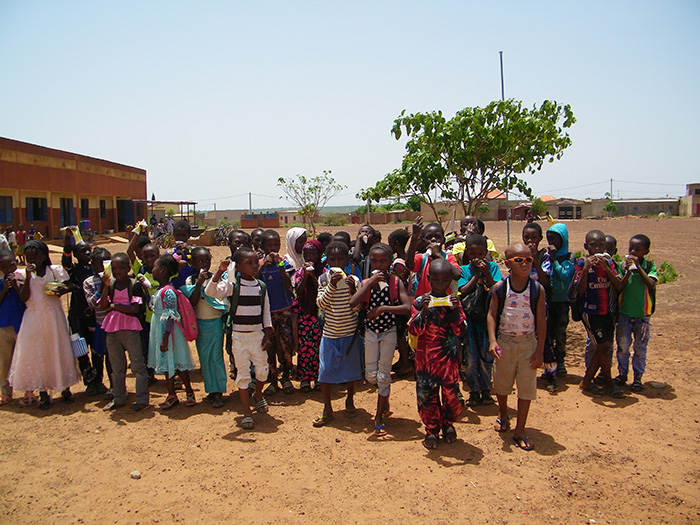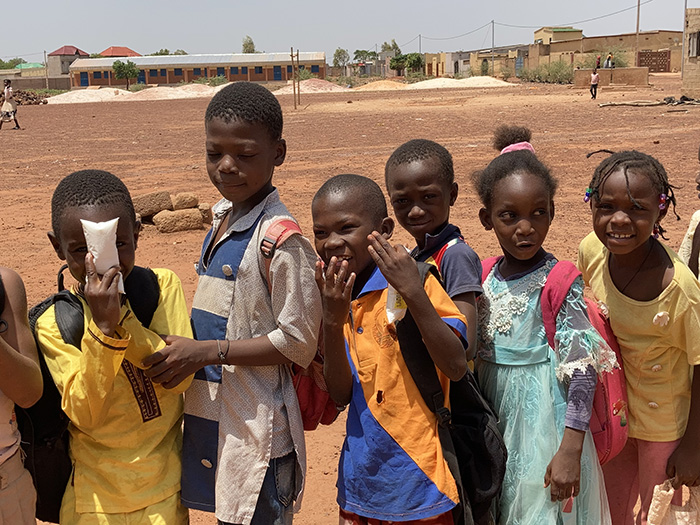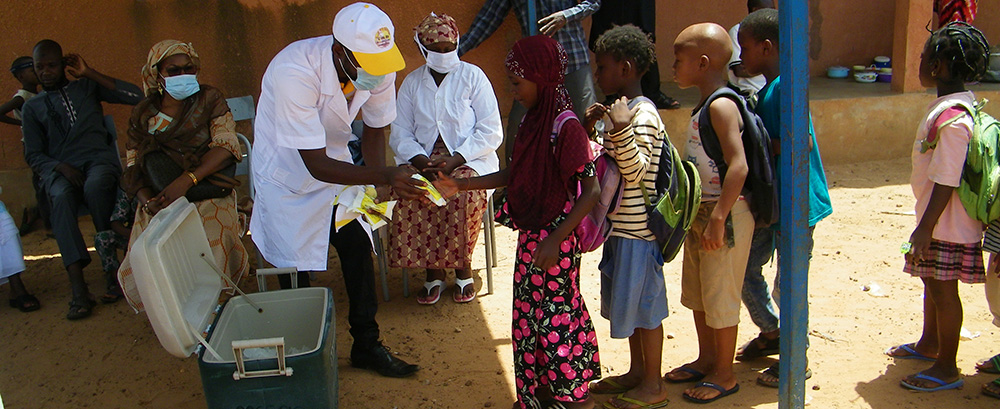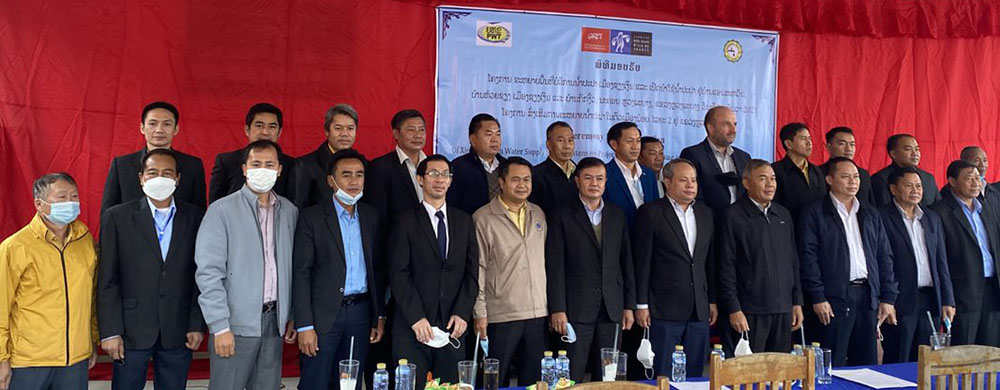Improving children’s diets and promoting the local milk value chain: this is the challenge tackled by the Cantines scolait’res* project, launched by GRET in 2021 in Burkina Faso, with support from the Bel Foundation and the Go In project partners.
*Schoolmilk canteens
Conducted in partnership with the commune of Bobo-Dioulasso, the Cantines scolait’res initiative aims to fight against child malnutrition in schools by diversifying foods and expanding marketing of local dairy products. It is being implemented by GRET, the commune of Bobo-Dioulasso and the Neema cooperative, an organisation made up of approximately twenty milk processing units.
Seven mini-dairy members of the Neema cooperative are being supported to implement a programme for processing of local milk into yoghurts. The latter are distributed twice a week to 4,660 children aged between 6 and 12, in seven schools in Bobo-Dioulasso, a town located in the south-west of the country. After an initial diagnosis, the skills of the teams at the seven units were strengthened, with a focus on best milk-processing practices and the implementation of quality control. The distributions, initiated in mid-May, will begin again in September, when the children return to school.

“We want milk distribution to be extended to all schools in the commune of Bobo-Dioulasso. Milk is a complete food and is necessary for children’s physical development. This distribution can therefore contribute to the children’s development and at the same time boost local milk production”, says Adjara Sanou, a promoter of the Komba Yaourt dairy.
This action is part of the extension of the Go In project, supported by the European Union, Agence française de développement and the Government of the Principality of Monaco. In partnership with the milk interprofessional organisation and Apess, GRET has been supporting small family livestock farms since 2017, with a view to sustainably increasing their production, processing and market access capacities, in a context of strong competition from imported powdered milk.
For Issouf Coulibaly, coordinator of the Go In project, “The idea of working in canteens was generated by an event organised in 2019 in Bobo-Dioulasso to enable families to discover local milk products and incite local authorities to support development of the value chain. On that occasion, the mayor expressed his interest in an innovative project that would make it possible to improve the quality of education and contribute to economic development in the territory.”

Distribution of yoghurts, a source of motivation for pupils
In Burkina Faso, 25 % of children under the age of 5 suffer from malnutrition. As canteen meals mainly consist of cowpea and rice, the introduction of yoghurts makes it possible to diversify the children’s diet and can be an additional motivation to attend school, because these products are very popular. The quality of school meals has a significant impact on children’s diets, their learning capacities and school attendance, as highlighted by Sanou Moussa, principal of the Bindougousso D. school: “We are in an area on the outskirts of the town, not all of the children live in decent conditions. When pupils know yoghurts are being distributed, even children who are often absent attend school.”
This action also enables children to retain a taste for local milk, which tends to be lost in some countries where imported powdered milk is becoming the norm. Cécile Broutin, “Agricultural development and agrifood value chains” programme manager with GRET, explains: “Children play an incentive role vis-à-vis parents and can convey messages on the family’s consumption choices. We are also planning to strengthen parents’ and teachers knowledge on nutrition, so that after the project they can continue to convey these messages.”
The municipality of Bobo-Dioulasso decided to fund 50 % of the budget to purchase the yoghurts, which opens up the prospects of the project.

Thanks to further support from the Bel Foundation, the project will soon be adapted in the north of Senegal, in three primary schools in the department of Dagana. Two mini-dairy partners of the Asstel 3 project will be supported to produce fortified thiakry, a local product made from milk and millet, enriched with iron to prevent anaemia in young children.
The content of this article is the sole responsibility of GRET and can in no case be considered as reflecting the opinions of the European Union.




